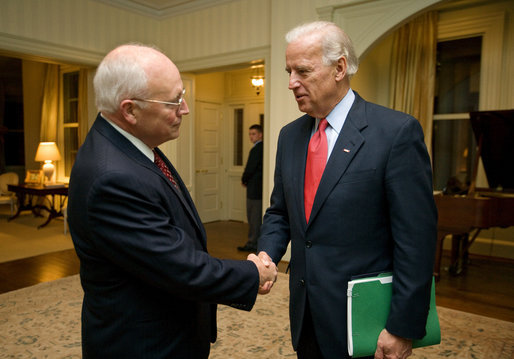Sanders' backers want a government that works. Trump's backers want a government that gets even.
By
Steven Rosenfeld
Lost in the tumult of covering the 2016 presidential campaign trail
is a striking reality that’s largely gone unacknowledged: the brewing
revolt at the grassroots by working- and middle-class Americans who feel
left behind by the system.
This discontent and its insecurities
are fueling the surges of Bernie Sanders and Donald Trump, who offer
different responses to it, and whose candidacies haven’t faded despite
predictions from party insiders and many pundits. It’s also underscored
by the fact that the GOP’s
two leading candidates—Trump and Ben Carson—have never held elective office, unlike the senators and governors trailing them.
Sanders
and Trump, in very different ways, are highlighting the failure of
status-quo politics to address concerns that hit home with non-wealthy
Americans. But while Sanders is running a campaign based on a positive
vision of government doing more for these Americans, Trump is striking a
cord with people who feel other slices of society need to be put down
so they can rise up.
Despite the stark differences in these
visions, both suggest that political business as usual cannot hold. That
sentiment also accounts for the lackluster appeal of candidates who are
pandering to wealthy elites, such as Jeb Bush.
But if we want to
understand what’s driving much of the energy on the ground in the 2016
race so far—as opposed to the wealth-driven super PACs—it is the
realization by many working- and middle-class people that government
does not have their back.
Sanders’ Optimistic Appeal
Sanders,
as many people who have watched his rise know, speaks to a range of
Americans who feel left behind or abandoned in an age of deepening
economic inequality and predatory corporate greed.
His agenda is built
on reviving government’s ability to help people with basics and live
with more dignity, whether it’s ending college debt, accessing health
care, fortifying retirements or other necessities. The wealthy can
afford to pay more in taxes for a fairer, more balanced, more secure
society, Sanders says, while acknowledging that this won’t come to pass
unless an unprecedented number of Americans vote and oust the right
wingers in Congress who just want to serve the rich and ignore everyone
else.
Sanders’ message is not just echoing in the country’s lefty
epicenters and Midwestern university towns. As the Washington
Spectator’s Rick Perlstein has
written,
recently covering Sanders in Texas and Indiana, his message is also
appealing to red staters who are used to voting for conservatives—if
they vote at all. He begins his latest report by talking about a
construction sales executive he sat next to on the plane to Texas to
cover a Sanders rally who praised Sanders’ “middle of the road”
messages, adding, “I like what I’ve heard.”
In some respects, that
is the same response depicted by the Dallas Morning News when it
interviewed attendees of Sanders’ first big Texas rally this summer,
such as a 36-year-old man who never before voted for president. “The
biggest reason why I support Bernie is that he knows the economy is
rigged in favor of the 1 percent," he
said. "No one else is really saying that, and it’s a huge problem.”
Moving
on with the Sanders campaign to Indiana’s rust belt, Perlstein noticed
that many supporters—white and black—also were motivated for the first
time in many years to get involved. At a house party on a night when the
campaign was hoping for 30,000 participants nationwide and 100,000 came
out, Perlstein
reported
how many people introduced themselves by saying they played by the
rules but couldn’t get a decent job and were drowning in
education-reletd debt. That prompted standing ovations and the
recognition that they weren’t alone. The next day in another
northwestern Indiana town, he met an African-American retiree who just
opened a storefront campaign office for Sanders and praised him for
following up with Black Lives Matter activists—after floundering at the
NetRoots Nation conference. “I’m okay with that,” she said. “He’s
learning.”
It's rare when presidential campaigns spark such
grassroots excitement and when it does it’s often dismissed by the
cynics in the media. “Something is happening here,” Perlstein wrote,
"something that reminds us that our existing models for predicting
winners and losers in politics need always be subject to revision.”
That
something is people whose voices and concerns have been downplayed by
the governing class are finding candidates who are speaking for them—but
their rhetoric and remedies are not as positive as Sanders’.
Trump’s Dark Triumph
On
the GOP side of the aisle, the biggest mystery is not why the
establishment’s presumed frontrunner, Jeb Bush, is failing to excite.
Nor it is why other high-ranking elected officials—governors and
senators—have not risen to the top, when they present themselves as
reincarnations of Ronald Reagan, or defenders of the right to get rich
and keep it all, or pose as ideological purists.
The biggest mystery is
why Trump has maintained his lead for months, with positions no
establishment candidate would take in public.
The best explanation
is there’s a major slice of America’s working- and middle-class who
look at the political system and don’t just feel left out, but are angry
that others—people who are poorer and richer than they are—seem to be
beneficiaries of a government that’s forgotten them. Hence, Trump’s
anti-immigrant bigotry, his smears of the politically correct, his
male-defending misogyny, and vision of being a strongman president—ie,
taking down competitors at home and abroad—appeals to those who feel
overlooked and aggrieved.
That’s the conclusion of an insightful
article
by John B. Judis, a senior writer for the National Journal, who makes a
convincing case that Trump supporters are not very different than the
alienated middle Americans who backed George Wallace for president in
1968, and backed Ross Perot and Pat Buchanan in 1992 (and 1996 and
2000). In 1992, Perot got 19 percent of the November vote, effectively
electing Bill Clinton.
Judis’ analysis is thorough, compelling,
and thoroughly troubling. It shows that there is a very dark streak
running through the electorate, as indeed has been the case through much
of American history.
He starts by citing an overlooked 1976 book by
Donald Warren, a sociologist from Michigan’s Oakland University,
The Radical Center: Middle Americans and the Politics of Alienation, which identifies this slice of the electorate and according to Warren contains one-quarter of the nation’s voters.
These
working- and middle-class people, Warren said, see “government favoring
the rich and the poor simultaneously,” are suspicious of big business,
are not college educated but favor government programs that give them
stability—such as Medicare, Social Security and possibly national health
insurance—and hold “very conservative positions on poverty and race.”
“If
these voters are beginning to sound familiar, they should: Warren’s
MARS [Middle American Radicals] of the 1970s are the Donald Trump
supporters of today," Judis
writes.
"Since at least the late 1960s, these voters have periodically
coalesced to become a force in presidential politics, just as they did
this past summer... Over the years, some of their issues have
changed—illegal immigration has replaced explicitly racist appeals—and
many of them now have junior college degrees and are as likely to hold
white-collar jobs. But the basic MARS worldview that Warren has outlined
has remained surprisingly intact.”
What makes Judis’ explanation
noteworthy is it goes beyond the mainstream media line, such as from the
New York Times’ “Upshot” page, that Trump’s appeal is only based on his
strong personality or because he’s a political outsider.
“What
has truly sustained Trump thus far is he does, in fact, articulate a
coherent set of ideological positions, even if those positions are not
exactly conservative or liberal,” Judis writes. “The key to figuring out
the Trump phenomenon—why it arose now and where it might be headed
next—lies in understanding this worldview.”
Americans are correct
to compare Trump’s demagoguery on behalf of “a silent majority” to the
worst of the George Wallace-Pat Buchanan tradition of grievance
politics, from attacking immigrants for taking away jobs, to smearing
Obamacare because the insurance industry keeps getting rich, to
encouraging government to excise the purported cancer in our midst.
“The
essential worldview of these Middle American Radicals was captured in a
1993 post-election survey by [Democratic pollster] Stanley Greenberg,
which found that Perot supporters were more likely than Clinton’s or
Bush’s to believe that ‘it’s the middle class, not the poor who really
get a raw deal today’ and that ‘people who work for a living and don’t
make a lot of noise never seem to get a break,’” Judis wrote, saying
there “has been no similar polling of Trump’s supporters.”
Where the 2016 Race Goes From Here
Judis'
last observation is that beating the nationalist drum is the final
hallmark of this dark campaign legacy, which Trump is also doing. His
most recent attack on Jeb Bush—blasting his brother George W. Bush for
the 9/11 attacks in New York City—are a perfect example of that thread.
Just how Trump's bullying nationalism will play out in a race where
Sanders just said Americans ought to look to Scandinavia for the level
of governmental supports that could be possible in America is anyone’s
guess. But that particular thread of nationalism can get very ugly, and
surely there’s more of it to come.
If Judis is correct that Trump
has revived some of the nastiest reflexes in the American electorate,
from the same slice of overlooked America that Sanders is engaging with
his more hopeful appeals, then it is time to take a hard look at what
status quo-defending candidates, their political parties and mainstream
media pundits are saying.
It sure looks like the Americans who are
paying attention to the political system and are getting involved with
2016’s candidates are deeply concerned, frustrated and on the political
right, angry and vengeful. That’s a dicey mix. At least Sanders is
offering specifics about what he would do and how he'd get results, not
just taunts, boasts and attitude. But Trump’s backers may not care much
for specifics, as long as someone else is fingered, blamed and attacked
on their behalf.
Steven Rosenfeld covers
national political issues for AlterNet, including America's retirement
crisis, democracy and voting rights, and campaigns and elections. He is
the author of "Count My Vote: A Citizen's Guide to Voting" (AlterNet
Books, 2008).

















